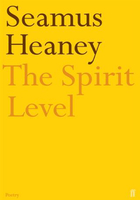The Data of Philosophy §39. Every thought involves a whole system of thoughts and ceasesto exist if severed from its various correlatives. As we cannot isolate asingle organ of a living body, and deal with it as though it had a life independentof the rest, so, from the organized structure of our cognitions, we cannotcut out one, and proceed as though it had survived the separation. The developmentof formless protoplasm into an embryo is a specialization of parts, the definitenessof which increases only as fast as their combination increases. Each becomesa distinguishable organ only on condition that it is bound up with others,which have simultaneously become distinguishable organs. Similarly, fromthe unformed material of consciousness, a developed intelligence can ariseonly by a process which, in making thoughts defined also makes them mutuallydependent -- establishes among them certain vital connexions the destructionof which causes instant death of the thoughts. Overlooking this all-importanttruth, however, speculators have habitually set out with some professedly-- simple datum or data; have supposed themselves to assume nothing beyondthis datum or these data; and have thereupon proceeded to prove or disprovepropositions which were, by implication, already unconsciously asserted alongwith that which was consciously asserted.
This reasoning in a circle has resulted from the misuse of words: notthat misuse commonly enlarged upon -- not the misapplication or change ofmeaning whence so much error arises; but a more radical and less obviousmisuse. Only that thought which is directly indicated by each word has beencontemplated; while numerous thoughts indirectly indicated have been leftout of consideration. Because a spoken or written word can be detached fromall others, it has been inadvertently assumed that the thing signified bya word can be detached from the things signified by all other words. Howprofoundly this error vitiates the conclusions of one who makes it, we shallquickly see on taking a case. The sceptical metaphysician, wishing his reasoningsto be as rigorous as possible, says to himself -- "I will take for grantedonly this one thing." What now are the tacit assumptions inseparablefrom his avowed assumption? The resolve itself indirectly asserts that thereis some other thing, or are some other things, which he might assume; forit is impossible to think of unity without thinking of a correlative dualityor multiplicity. In the very act, therefore, of restricting himself, he takesin much that is professedly left out. Again, before proceeding he must givea definition of that which he assumes. Is nothing unexpressed involved inthe thought of a thing as defined? There is the thought of something excludedby the definition -- there is, as before, the thought of other existence.
But there is much more. Defining a thing, or setting a limit to it, impliesthe thought of a limit; and limit cannot be thought of apart from some notionof quantity extensive, protensive, or intensive. Further, definition is impossibleunless there enters into it the thought of difference; and difference, besidesbeing unthinkable without having two things that differ, implies the existenceof other differences than the one recognized; since without them there cannothave been formed the general conception of difference. Nor is this all. Asbefore potted out (§24) all thought involves the consciousness of likeness: the one thing avowedly postulated cannot be known absolutely as one thing,but can be known only as of such or such kind -- only as classed with otherthings in virtue of some common attribute. Thus, along with the single avoweddatum, we have surreptitiously brought in a number of unavowed data -- existenceother than that alleged, quantity, number, limit, difference, likeness, class,attribute. Now in these unacknowledged postulates, we have the outlines ofa general theory; and that theory can be neither proved nor disproved bythe metaphysician's argument. Insist that his symbol shall be interpretedat every step into its full meaning, with all the complementary thoughtsimplied by that meaning, and you find already taken for granted in the premissesthat which in the conclusion is asserted or denied.
In what way, then, must Philosophy set out? The developed intelligenceis framed upon certain organized and consolidated conceptions of which itcannot divest itself; and which it can no more stir without using than thebody can stir without help of its limbs. In what way, then, is it possiblefor intelligence, striving after Philosophy, to give any account of theseconceptions, and to show either their validity or their invalidity? Thereis but one way. Those of them which are vital, or cannot be severed fromthe rest without mental dissolution, must be assumed as true provisionally.















